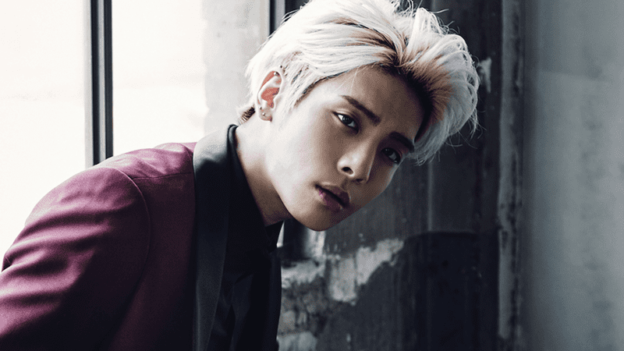 By Anderson Sungmin Yoon, DSW, LCSW-R, CASAC, RPT-S
By Anderson Sungmin Yoon, DSW, LCSW-R, CASAC, RPT-S
Vice President, Integrated and Value-Based Care
On December 18, 27-year-old Korean “K-pop” artist Jonghyun, lead singer of global boy band SHINee, was found unconscious in an apartment in Seoul. He was pronounced dead at a nearby hospital, where he was immediately taken. The cause was suicide.
Like most, it was a tragedy that didn’t need to happen. In Jonghyun’s case, he demonstrated his struggle with depression in his songs and his numerous media interviews. Yet no one seemed to recognize, or act upon, his distress or take immediate preventive measures to help stop him from killing himself. The beloved pop star even left a suicide note to his friend shortly before his death. Ten days before he killed himself, Jonghyun sent a note to his friend, singer Nine9, revealing his struggle with depression and suicidal ideation. “I’m broken from the inside,” the note read. “The depression that has slowly eaten away at me has finally consumed me, and I couldn’t beat it.”
The publication of this note, and the detailed description of the suicide method he used, provoked heated controversy, as those factors have been shown to lead to copycat suicides — especially when committed by an idolized figure like Jonghyun, who has a huge, devoted following, not just in South Korea, but around the world, including in Korean-American communities, like the one in which I serve. Mental health experts warn that his suicide could act as a trigger for susceptible people to emulate.
As a mental health professional with over 16 years of clinical practice experience, I am concerned they may be right. Vulnerable individuals may misread Jonghyun’s story in the media and imitate his suicide. That is why one of the most important things we can do in the aftermath of Jonghyun’s death is address the “inevitability” fallacy that surrounds suicide — and the media and pop artists who spread Jonghyun’s note can play the most vital role.
Copycat suicide, also known as the Werther effect for the tormented main character of Goethe’s famous novel Sorrows of Young Werther, refers to the duplication of another suicide depicted on television or in other media outlets. In particular, studies measuring the imitative effect of a celebrity suicide story have found that a celebrity suicide story is 14.3 times more likely to result in a copycat suicide than non-celebrity suicides.
Major Korean newspaper the Chosun Ilbo reported that approximately 2,632 people committed suicide during the two months after five Korean celebrities took their own lives. This was a 30 percent increase over the average.
The findings indicate that real stories about famous entertainer suicides (e.g., Jonghyun) could pose significant risks in relation to copycat suicides. The good news is that the number of copycat suicides could be potentially reduced, based on the types of suicide stories covered in the media and how suicide is depicted to the public.
To avoid triggering copycat suicides, I urge the media to be responsible in their continued reporting and inform audiences that suicide is a preventable public health issue — not an inevitable consequence of depression. One of the most concerning parts of the publication of the suicide note is the reactions being captured that portray Jonghyun’s suicide as inevitable. For example, Nine9 revealed that Jonghyun had shared “deep and dark thoughts” with her in the past, and she tried to intervene, but, “In the end, it only delayed his passing and did not prevent it.”
This kind of thinking makes it less likely that people will get help — for themselves or someone else. After all, why delay the inevitable? It’s unhelpful, and it’s inaccurate. Contrary to public myth, a vast majority of people – nine out of 10 – who attempt suicide and survive will not go on to die by suicide at a later date.
Therefore, although Jonghyun’s depression and suffering are validated, his suicide shouldn’t be depicted as an unavoidable coping strategy to end his agony.
The media also should address the warning signs of suicide and encourage people to seek help whenever they cover a suicide like Jonghyun’s — and for maximum impact, those pleas should be echoed and amplified by fellow pop stars. The stigma associated with mental health problems and receiving treatment is still strong, especially in Korean and other Asian cultures. Most people who live with mental illness report that they experience stigma and were reluctant to seek the help they need. That is why, as one of many effective strategies, I recommend that Jonghyun’s fellow K-pop stars raise their voices against the mental health stigma and encourage his fans to seek help. Susceptible fans may listen to their idols’ pleas and recommendations. It also is important to deliver the message that mental health is equated with physical health. They can openly talk to the traditional media and social networking sites about their own mental health problems and encourage people to seek help. The more we talk, the less we are ashamed of mental health problems.
For those who are gravely affected by Jonghyun’s suicide and still in severe distress — possibly including Nine9, who must be suffering from incredible grief and guilt, though no one can be blamed for another’s suicide — we recommend referring them to mental health professionals who can help them feel understood and learn effective coping strategies to deal with emotional pain, such as sadness, despair, and grief, after the traumatic loss of Jonghyun. It is helpful for mental health professionals to explain the connection between depression, other mental health problems, and suicide.
If we identify the suicide warning signs of our loved ones and help them get the right services, we can help save their lives. This process starts by asking questions about whether or not they have any suicidal thoughts. If we do not ask, they will not talk about their suicidal thoughts, as was the case with Jonghyun.
If someone shows high risks of suicide, immediately refer them to mental health professionals. There are empirically based treatments available for suicide prevention. Researchers have found that dialectical behavior therapy and cognitive behavioral therapy are effective in preventing suicide. Dialectical behavior therapy, developed by Marsha M. Linehan, is used to treat people with severe mental health problems and suicidal behaviors. It also helps them learn to regulate dysfunctional emotions and tolerate distress. Although the causes of suicide are multifaceted, suicide attempters commonly lack the effective skills necessary to regulate emotions and tolerate distress. Along with skills training, cognitive behavior therapy can help identify dysfunctional thinking patterns on suicide, restructure dysfunctional distortions, and restore hope and resilience.
The common denominator in all this is that there is hope. Depression is not a death sentence, and the sooner the media, celebrities, and people on the street recognize that, the fewer pop stars, loved ones, and friends we will needlessly mourn.
Editor’s Note: Sadly, another suicide was in the news this past week. Popular YouTube vlogger Logan Paul posted a video of a suicide victim in Japan. We were extremely disappointed and disturbed by Paul’s treatment of both suicide in general and this individual suicide victim in particular: laughing, showing the victim up close, and using a personal tragedy of someone he did not know — someone’s brother, son, friend — as a publicity tool. Although he later apologized for his lack of judgment and pulled the video, we once again feel compelled to decry how suicide is portrayed, and how much damage it can do to vulnerable individuals. Paul’s 15 million subscribers are overwhelmingly teens and tweens; he has done them a grave disservice. We recently saw that Paul will be taking time off from vlogging to reflect. We hope that when he returns, he will choose to turn this around, as promised, and work to promote suicide prevention.
For anyone who is experiencing suicidal thoughts, please text the Crisis Text line at 741741 or call the National Suicide Prevention Lifeline at 1-800-273-8255. You’re not alone. Confidential help is available for free.
The Child Center of NY provides help for people struggling with depression and other mental health challenges. Please call us to see if we can help.
Updates:
- On January 21, another beloved K-pop artist, actor Jeon Tae-soo, died by suicide after battling depression. We are deeply saddened by this news and urge other K-pop stars — and members of the media who cover them — to talk about these deaths responsibly, resisting the urge to portray suicide as an inevitable consequence of depression. This second sad death underscores the legitimacy of concerns about copycat suicides, and that we all have an obligation to do what we can to stop them by offering real hope.
- We are heartened to see that Logan Paul is so far making good on his promise to spread awareness of suicide prevention — and the true message that there is always hope. On January 24, Paul posted Suicide: Be Here Tomorrow, which features individuals who have survived suicide attempts, suicide prevention experts, and a list, compiled by Dr. John Draper, director of the National Suicide Prevention Lifeline, of five steps anyone can take to help prevent suicide. Equally important was the emphasis on inspiring stories of people who thought of or attempted suicide but instead got help and are now living fulfilling lives. Paul also pledged to donate $1 million to suicide prevention efforts. We hope this momentum continues.







Pingback: 1 in 5 Malaysian students have mental health problems. But are they getting any help?!